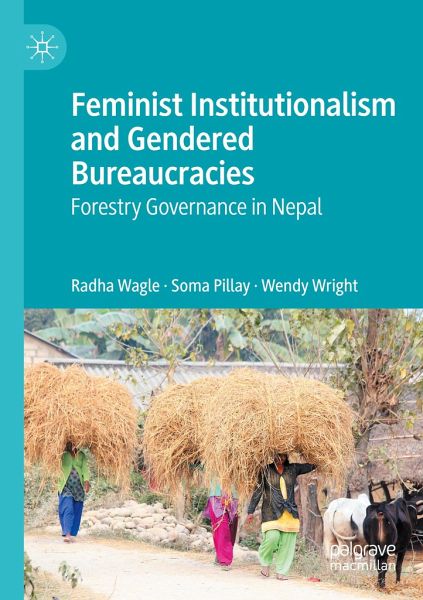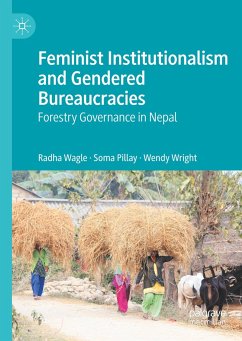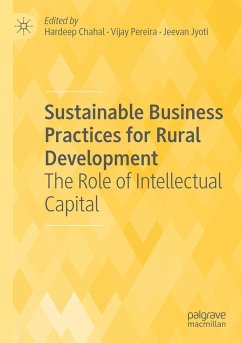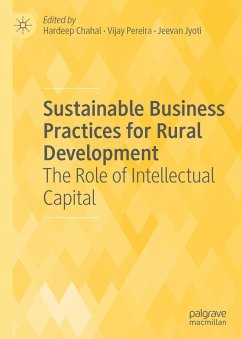
Feminist Institutionalism and Gendered Bureaucracies
Forestry Governance in Nepal

PAYBACK Punkte
40 °P sammeln!
This book examines the processes for the inclusion of women, and the role of women employees in Nepal's forestry bureaucracy. The book adopts a "gender lens" drawn from feminist institutionalism and is framed around the following four objectives: evaluating the effectiveness of current legislative and policy frameworks for the inclusion of women in the Nepalese forest bureaucracy; examining the dynamics of organizational culture, formal and informal institutions, and structure and agency in and around forest bureaucracy in Nepal; assessing power relations in forestry institutions focusing on i...
This book examines the processes for the inclusion of women, and the role of women employees in Nepal's forestry bureaucracy. The book adopts a "gender lens" drawn from feminist institutionalism and is framed around the following four objectives: evaluating the effectiveness of current legislative and policy frameworks for the inclusion of women in the Nepalese forest bureaucracy; examining the dynamics of organizational culture, formal and informal institutions, and structure and agency in and around forest bureaucracy in Nepal; assessing power relations in forestry institutions focusing on influential participation of women forestry professionals in the bureaucratic structure; and gaining insights about the alternative space of feminist institutionalism in connection with women inclusive forest bureaucracy.
Findings in the book inform and extend feminist institutionalism perspectives by applying it to a context which remains under explored, providing insights on the efficacyof public sector cultural change, especially as it relates to those areas within bureaucracies less in a position to adopt the changes mandated by society and principles of good governance.
Findings in the book inform and extend feminist institutionalism perspectives by applying it to a context which remains under explored, providing insights on the efficacyof public sector cultural change, especially as it relates to those areas within bureaucracies less in a position to adopt the changes mandated by society and principles of good governance.














